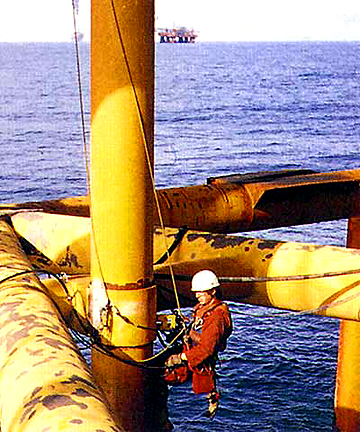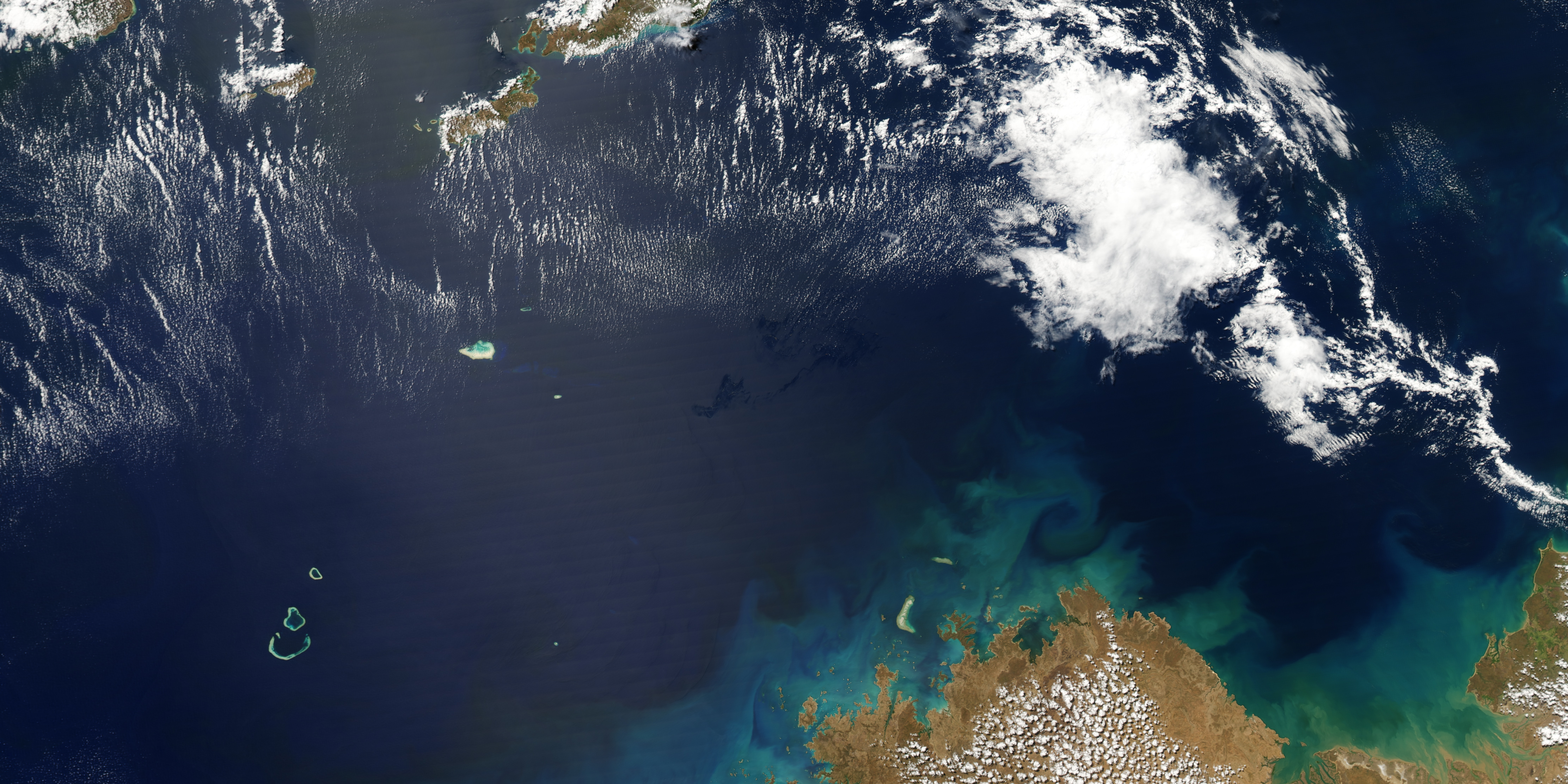|
International Convention On Oil Pollution Preparedness, Response And Co-operation
International Convention on Oil Pollution Preparedness, Response and Co-operation (OPRC) is an international maritime convention establishing measures for dealing with marine oil pollution incidents nationally and in co-operation with other countries. , there are 112 state parties to the convention. OPRC Convention was drafted within the framework of the International Maritime Organization and adopted in 1990 entering into force in 1995. In 2000 a protocol to the Convention relating to hazardous and noxious substances (HNS) was adopted (the OPRC-HNS Protocol). In accordance with this convention and its annex, states-parties to the 1990 convention undertake, individually or jointly, to take all appropriate measures to prepare for and respond to oil pollution incidents. Scope The Convention applies to: * vessels of any type whatsoever operating in the marine environment including hydrofoil boats, air-cushion vehicles, submersibles, and floating craft of any type; * fixed or fl ... [...More Info...] [...Related Items...] OR: [Wikipedia] [Google] [Baidu] |
Oil Spill
An oil spill is the release of a liquid petroleum hydrocarbon into the environment, especially the marine ecosystem, due to human activity, and is a form of pollution. The term is usually given to marine oil spills, where oil is released into the ocean or coastal waters, but spills may also occur on land. Oil spills can result from the release of crude oil from oil tanker, tankers, Oil platform, offshore platforms, drilling rigs, and Oil well, wells. They may also involve spills of Oil refinery, refined petroleum products, such as gasoline and diesel fuel, as well as their by-products. Additionally, heavier fuels used by large ships, such as bunker fuel, or spills of any oily refuse or waste oil, contribute to such incidents. These spills can have severe environmental and economic consequences. Oil spills penetrate into the structure of the plumage of birds and the fur of mammals, reducing its insulating ability, and making them more vulnerable to temperature fluctuations and muc ... [...More Info...] [...Related Items...] OR: [Wikipedia] [Google] [Baidu] |
Offshore Oil Spill Prevention And Response
Offshore oil spill prevention and response is the study and practice of reducing the number of offshore drilling, offshore incidents that oil spill, release oil or hazardous substances into the environment and limiting the amount released during those incidents. Important aspects of prevention include technological assessment of equipment and procedures, and protocols for training, inspection, and contingency plans for the avoidance, control, and shutdown of offshore operations. Response includes technological assessment of equipment and procedures for Oil spill#Cleanup and recovery, cleaning up oil spills, and protocols for the detection, monitoring, containment, and removal of oil spills, and the restoration of affected wildlife and habitat. In the United States, offshore oil spill prevention contingency plans and emergency response plans are federally mandated requirements for all offshore oil facilities in U.S. Federal waters. Currently administered by the Minerals Management ... [...More Info...] [...Related Items...] OR: [Wikipedia] [Google] [Baidu] |
Treaties Entered Into Force In 1995
A treaty is a formal, legally binding written agreement between sovereign states and/or international organizations that is governed by international law. A treaty may also be known as an international agreement, protocol, covenant, convention, pact, or exchange of letters, among other terms; however, only documents that are legally binding on the parties are considered treaties under international law. Treaties may be bilateral (between two countries) or multilateral (involving more than two countries). Treaties are among the earliest manifestations of international relations; the first known example is a border agreement between the Sumerian city-states of Lagash and Umma around 3100 BC. International agreements were used in some form by most major civilizations and became increasingly common and more sophisticated during the early modern era. The early 19th century saw developments in diplomacy, foreign policy, and international law reflected by the widespread use of treat ... [...More Info...] [...Related Items...] OR: [Wikipedia] [Google] [Baidu] |
Oil Spills
An oil spill is the release of a liquid petroleum hydrocarbon into the environment, especially the marine ecosystem, due to human activity, and is a form of pollution. The term is usually given to marine oil spills, where oil is released into the ocean or coastal waters, but spills may also occur on land. Oil spills can result from the release of crude oil from tankers, offshore platforms, drilling rigs, and wells. They may also involve spills of refined petroleum products, such as gasoline and diesel fuel, as well as their by-products. Additionally, heavier fuels used by large ships, such as bunker fuel, or spills of any oily refuse or waste oil, contribute to such incidents. These spills can have severe environmental and economic consequences. Oil spills penetrate into the structure of the plumage of birds and the fur of mammals, reducing its insulating ability, and making them more vulnerable to temperature fluctuations and much less buoyant in the water. Cleanup and ... [...More Info...] [...Related Items...] OR: [Wikipedia] [Google] [Baidu] |
Law Of The Sea Treaties
Law is a set of rules that are created and are enforceable by social or governmental institutions to regulate behavior, with its precise definition a matter of longstanding debate. It has been variously described as a science and as the art of justice. State-enforced laws can be made by a legislature, resulting in statutes; by the executive through decrees and regulations; or by judges' decisions, which form precedent in common law jurisdictions. An autocrat may exercise those functions within their realm. The creation of laws themselves may be influenced by a constitution, written or tacit, and the rights encoded therein. The law shapes politics, economics, history and society in various ways and also serves as a mediator of relations between people. Legal systems vary between jurisdictions, with their differences analysed in comparative law. In civil law jurisdictions, a legislature or other central body codifies and consolidates the law. In common law systems, judges m ... [...More Info...] [...Related Items...] OR: [Wikipedia] [Google] [Baidu] |
International Maritime Organization Treaties
International is an adjective (also used as a noun) meaning "between nations". International may also refer to: Music Albums * ''International'' (Kevin Michael album), 2011 * ''International'' (New Order album), 2002 * ''International'' (The Three Degrees album), 1975 *''International'', 2018 album by L'Algérino Songs * The Internationale, the left-wing anthem * "International" (Chase & Status song), 2014 * "International", by Adventures in Stereo from ''Monomania'', 2000 * "International", by Brass Construction from ''Renegades'', 1984 * "International", by Thomas Leer from ''The Scale of Ten'', 1985 * "International", by Kevin Michael from ''International'' (Kevin Michael album), 2011 * "International", by McGuinness Flint from ''McGuinness Flint'', 1970 * "International", by Orchestral Manoeuvres in the Dark from '' Dazzle Ships'', 1983 * "International (Serious)", by Estelle from '' All of Me'', 2012 Politics * Internationalism (politics) * Political international, any ... [...More Info...] [...Related Items...] OR: [Wikipedia] [Google] [Baidu] |
Environmental Impact Of Shipping
Environment most often refers to: __NOTOC__ * Natural environment, referring respectively to all living and non-living things occurring naturally and the physical and biological factors along with their chemical interactions that affect an organism or a group of organisms Other physical and cultural environments *Ecology, the branch of ethology that deals with the relations of organisms to one another and to their physical surroundings * Environment (systems), the surroundings of a physical system that may interact with the system by exchanging mass, energy, or other properties. *Built environment, constructed surroundings that provide the settings for human activity, ranging from the large-scale civic surroundings to the personal places *Social environment, the culture that an individual lives in, and the people and institutions with whom they interact * Market environment, business term Arts, entertainment and publishing * ''Environment'' (magazine), a peer-reviewed, popular ... [...More Info...] [...Related Items...] OR: [Wikipedia] [Google] [Baidu] |
Environmental Treaties
An international environmental agreement or sometimes environmental protocol, is a type of treaty binding in international law, allowing them to reach an environmental goal. In other words, it is "an intergovernmental document intended as legally binding with a primary stated purpose of preventing or managing human impacts on natural resources." An agreement between two nations is known as a bilateral environmental agreement. If the agreement is made among three or more nations, it is called a multilateral environmental agreement (MEA). Such agreements, primarily produced by the United Nations, cover subjects such as atmospheric policies, freshwater policies, hazardous waste and substance policies, the marine environment, nature conservation policies, noise pollution and nuclear safety. History and use The use of multilateral environment agreements began in 1857, when a German agreement regulated the flow of water from Lake Constance to Austria and Switzerland. International ... [...More Info...] [...Related Items...] OR: [Wikipedia] [Google] [Baidu] |
Port Authority
A port authority (less commonly a port district) is a governmental or quasi-governmental public authority for a special-purpose district usually formed by a legislative body (or bodies) to operate ports and other transportation infrastructure. In Canada, the federal Minister of Transport selects the local chief executive board member and the rest of the board is appointed at the recommendation of port users to the federal Minister; while all Canadian port authorities have a federal or Crown charter called ''letters patent''. Numerous Caribbean nations have port authorities, including those of Aruba, British Virgin Islands, Bahamas, Jamaica, Cayman Islands, Trinidad and Tobago, St. Lucia, St. Maarten, St. Vincent and the Grenadines. Central and South America also have port agencies such as ''autoridad'' and ''consorcio'' (authority and consortium). In Mexico, the federal government created sixteen port administrations in 1994–1995 called ''Administración Portuaria Integral' ... [...More Info...] [...Related Items...] OR: [Wikipedia] [Google] [Baidu] |
Shipping
Freight transport, also referred to as freight forwarding, is the physical process of transporting commodities and merchandise goods and cargo. The term shipping originally referred to transport by sea but in American English, it has been extended to refer to transport by land or air (International English: "carriage") as well. "Logistics", a term borrowed from the military environment, is also used in the same sense. History Prehistoric Era Initial human civilization relied heavily on domesticated animals, such as horses, camels, and donkeys, to transport their goods. The invention of the wheel in Mesopotamia in 5000BC improved this efficiency by allowing for carts and carriages to be created, which animals could pull. Classical Era Romans The Romans built a vast network of roads, which facilitated trade across the numerous cities in its empire. Silk Road Transport along the silk road, a land-based route, was generally done through caravans, equipped ... [...More Info...] [...Related Items...] OR: [Wikipedia] [Google] [Baidu] |
National Oil And Hazardous Substances Pollution Contingency Plan
The National Oil and Hazardous Substances Pollution Contingency Plan or National Contingency Plan (NCP) is the United States federal government's blueprint for responding to oil spills and hazardous substance releases. It documents national response capability and is intended to promote overall coordination among the hierarchy of responders and contingency plans.National Oil and Hazardous Substances Pollution Contingency Plan Overview . Accessed November 19, 2009. The first National Contingency Plan was developed and published in 1968, in response to a massive oil spill fr ... [...More Info...] [...Related Items...] OR: [Wikipedia] [Google] [Baidu] |






